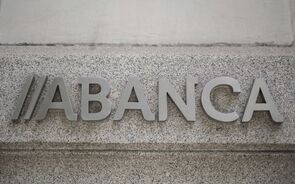Fear factor - Job losses (artigo de Irwin Kellner)
1 Mensagem
|Página 1 de 1
Fear factor - Job losses (artigo de Irwin Kellner)
Fear factor
Commentary: Job losses could spur new protectionism
By Dr. Irwin Kellner, CBS MarketWatch.com
Last Update: 9:38 AM ET Feb. 24, 2004
HEMPSTEAD, N.Y. (CBS.MW) -- Two fears haunt America's breadwinners these days - the fear of losing their job, and the fear of not being able to find a new one. Guess what has just become the number one issue in the presidential election campaign.
In retrospect, this should not be surprising, since this has been a campaign of the "antis." Howard Dean ran as an anti-war candidate, now John Edwards is pulling both parties toward anti-trade.
Interestingly enough, while the foreign press paid little attention to Dean's theme, it has become all worked up over Edwards' anti-trade tirades. Presumably this reflects concerns in other countries that the U.S. might act to slow the flow of jobs offshore while it erects new barriers to foreign goods entering this country.
Besides the foreign press, most economists tend to champion the free movement of goods and services across national borders. This is long ingrained in our systems.
Adam Smith, widely regarded as the first economist, was in favor of allowing everyone to specialize in what he does best, while David Ricardo, in his doctrine of comparative advantage, said everyone benefits when countries that can produce something at the lowest cost are allowed to provide it to everyone else.
This makes for great discussions in the ivory tower of academe, but it is a no-no in the real world of political correctness - as Gregory Mankiw, chairman of President Bush's Council of Economic Advisers, found out recently. He was excoriated by members of both parties - not to mention by the American press - for simply restating this economic dogma.
His critics may have a point. This kind of academic economic analysis assumes a level playing field in all countries, which is simply not true today.
Besides low wages, companies abroad have other advantages over their U.S. counterparts, such as little or no health-care costs, less onerous regulations dealing with labor and the environment - and in many cases, an artificially depressed currency.
Here's the nub of the debate: The U.S. economy's failure to produce significant job growth more than two years after the end of a recession is unprecedented in modern times.
At this point in past recoveries, payrolls were more than 5 percent larger than they were at the end of the recession. Even in the so-called "jobless recovery" following the 1990-91 recession, jobs were up about 2 percent.
Today, there are fewer people on employers' payrolls than there were 26 months ago, at the end of the 2001 recession.
Blame it on a surge in productivity. Instead of rising 6 percent, as it has done on average in the prior seven recoveries, productivity has jumped by a whopping 10 percent this time around.
Part of this increase in efficiency involves sending jobs overseas. And this is where the anti-trade sentiment comes in. People sense that while they can't stand in the way of technological progress, they can at least force companies to keep whatever jobs they have in this country.
In the words of that great economist, Yogi Berra, this is déjà vu all over again.
This was the same rationale used to pass the Smoot-Hawley Tariff Act back in 1930, and you know what happened after that.
Commentary: Job losses could spur new protectionism
By Dr. Irwin Kellner, CBS MarketWatch.com
Last Update: 9:38 AM ET Feb. 24, 2004
HEMPSTEAD, N.Y. (CBS.MW) -- Two fears haunt America's breadwinners these days - the fear of losing their job, and the fear of not being able to find a new one. Guess what has just become the number one issue in the presidential election campaign.
In retrospect, this should not be surprising, since this has been a campaign of the "antis." Howard Dean ran as an anti-war candidate, now John Edwards is pulling both parties toward anti-trade.
Interestingly enough, while the foreign press paid little attention to Dean's theme, it has become all worked up over Edwards' anti-trade tirades. Presumably this reflects concerns in other countries that the U.S. might act to slow the flow of jobs offshore while it erects new barriers to foreign goods entering this country.
Besides the foreign press, most economists tend to champion the free movement of goods and services across national borders. This is long ingrained in our systems.
Adam Smith, widely regarded as the first economist, was in favor of allowing everyone to specialize in what he does best, while David Ricardo, in his doctrine of comparative advantage, said everyone benefits when countries that can produce something at the lowest cost are allowed to provide it to everyone else.
This makes for great discussions in the ivory tower of academe, but it is a no-no in the real world of political correctness - as Gregory Mankiw, chairman of President Bush's Council of Economic Advisers, found out recently. He was excoriated by members of both parties - not to mention by the American press - for simply restating this economic dogma.
His critics may have a point. This kind of academic economic analysis assumes a level playing field in all countries, which is simply not true today.
Besides low wages, companies abroad have other advantages over their U.S. counterparts, such as little or no health-care costs, less onerous regulations dealing with labor and the environment - and in many cases, an artificially depressed currency.
Here's the nub of the debate: The U.S. economy's failure to produce significant job growth more than two years after the end of a recession is unprecedented in modern times.
At this point in past recoveries, payrolls were more than 5 percent larger than they were at the end of the recession. Even in the so-called "jobless recovery" following the 1990-91 recession, jobs were up about 2 percent.
Today, there are fewer people on employers' payrolls than there were 26 months ago, at the end of the 2001 recession.
Blame it on a surge in productivity. Instead of rising 6 percent, as it has done on average in the prior seven recoveries, productivity has jumped by a whopping 10 percent this time around.
Part of this increase in efficiency involves sending jobs overseas. And this is where the anti-trade sentiment comes in. People sense that while they can't stand in the way of technological progress, they can at least force companies to keep whatever jobs they have in this country.
In the words of that great economist, Yogi Berra, this is déjà vu all over again.
This was the same rationale used to pass the Smoot-Hawley Tariff Act back in 1930, and you know what happened after that.
-
Info.
1 Mensagem
|Página 1 de 1
Quem está ligado:
Utilizadores a ver este Fórum: Ano nimus, Burbano, darkreflection, Dragon56, GaussSLB47, jprgodinho, lito, m-m, malakas, maturidade, MR32, Nightrader, O Magriço, OCTAMA, Olhar Leonino, PAULOJOAO, PMP69, portwine1, Simplório e 69 visitantes


